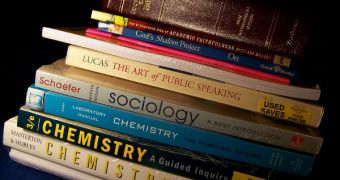English scientists from the University of Manchester, led by Dr. Matthias vom Hau, have recently announced that the conclusion of their latest study is ominous – nearly all textbooks the team analyzed over the course of the investigation had political messages, most of them nationalistic. Hundreds of textbooks from countries in Latin America, the United States, the United Kingdom and Germany were reviewed, and the team says that the main theme is always the same – turn the children into model citizens that abide by the country's laws, PhysOrg reports.
Books dealing with national history, citizenship, and English literature were the main targets of the new investigation. The team reveals that the same nationalistic messages were discovered in all of the books, albeit in different contexts. Furthermore, the messages had changed over the past 150 years, a time frame for which the investigators were able to find printed materials. Vom Hau reveals that, in Latin American countries, the experts allowing textbooks to be published judge the information presented within based on political criteria, and not on the quality of the data.
“Schools of course educate us and make us literate. But what you learn about national identity and history is highly regulated by Government and expert panels and thus they are an outcome of a complex political process. School textbooks do not reveal the ‘facts,’ they convey particular visions of reality by emphasizing and downplaying certain aspects of the world. States usually take a major interest in textbooks and put a lot of effort into shaping what content gets printed. Historically, states have treated schools as places for cultivating national attachments and loyalty among their citizens,” the UM Brooks World Poverty Institute-based investigator adds.
“But how teachers and students react is of course another thing: sometimes they reject what they teach or are taught, and the state’s message doesn't get through. But what is so fascinating is that different states have such similar ways of expressing their ideas about national identity and history though their textbooks. For example in the late 19th century, textbooks in Latin America were used to promote the idea that history was made by a few great men. During that period Latin American textbooks also portrayed European colonialism as something positive, as a civilizing force,” vom Hau explains.

 14 DAY TRIAL //
14 DAY TRIAL //